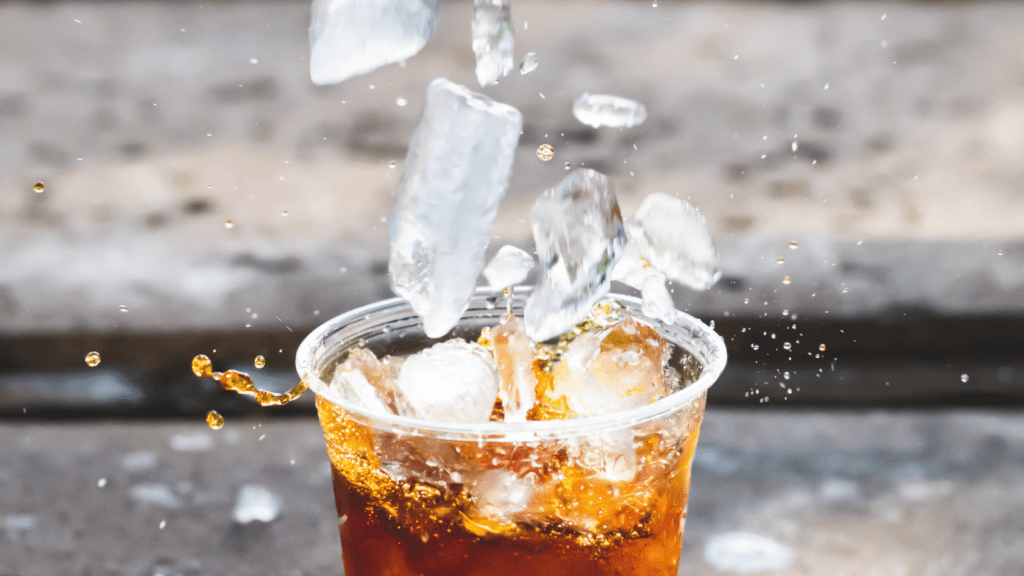
Are you an ice chewer? Do you associate with any ice chewers? Are you/they a sometimes ice chewer, or a compulsive ice chewer? If any of the previous questions resulted in a “yes”, then let’s have a quick chat. If not, you should still read this article, because someday you will meet one of these magical ice chewing creatures, and you might be able to help them out.
You’ve heard ice chewing is bad for your teeth. It is. But WHY you ask?
Ice is COLD! “Yes, I know ice is cold, Dr. Brooks. I was not born under a rock.”
Ok, imagine putting a solid bar of chocolate in the freezer (I like a good bean-to-bar dark chocolate myself). Now, imagine taking a hammer to that freezing cold bar. It would shatter into tiny pieces, right? If you had taken a hammer to a room temperature chocolate bar, you would get a few medium size pieces worthy of a campfire s’more. Physics dictates that when things are frozen, they become brittle and are more likely to shatter.
When you’re crunching through a cup of ice, your teeth start to freeze and become brittle. The brittleness of your cold teeth, mixed with the hard nature of ice cubes, can cause your teeth to fracture. While your teeth might not crack in half, chewing ice can cause microscopic cracks in the surface of your tooth enamel, which can lead to bigger dental problems over time like chipped teeth, problems with existing dental work such as fillings and crowns, and sore jaw muscles. You may also notice your teeth become extremely sensitive to hot and cold temperatures, and are more prone to cavities. While crushed ice is less harmful than larger cubes, it still doesn’t have my blessing.
Can’t get enough? An addiction to chewing ice could mean you are anemic!
If you or someone you know fall into the compulsive ice chewing category, there is a good chance there is a larger issue fueling the obsession. Craving or chewing ice is the most common symptom of Pagophagia.
Pagophagia is a condition related to iron deficiency anemia where people compulsively crave and chomp on ice. The good news is that iron supplements tend to ease the cravings. About 20 percent of cases are pregnant women (my own wife has experienced this), since their iron stores can easily get depleted while supplying both themselves and their growing fetuses.
But what is it about ice that makes it so irresistible?
A new study suggests that, like a strong cup of coffee, ice may give those with insufficient iron a much-needed mental boost. Fatigue is the most common symptom of iron-deficiency anemia, which occurs when the body can’t produce enough oxygen-carrying hemoglobin because of low iron. Ice becomes like a cup of coffee. The anemic doesn’t feel awake until they have a cup of ice in their hands.
“How can I stop chewing ice?”
It shouldn’t be hard to quit. Again, if you are truly addicted to chewing ice, there is a high probability there is a deeper medical issue at hand. Make an appointment with your doctor for a physical check-up to see if you have anemia or another issue that is causing the cravings, and then follow through with medical treatment for the deficiency. The good news is that ice-addicted anemics report that their craving to chew ice is gone when they get proper treatment for their anemia. If the cravings ever comes back, it’s a good indicator your iron stores may be off-balance again.
Dental care is essential to reduce and repair the damage that can be caused by chewing ice. If you’ve been putting off seeing a dentist due to cost, you’ll be happy to know that we provide an affordable alternative to paying out of pocket or pricey dental insurance.
With our PREMIER DENTAL CARE MEMBERSHIP, our members save 20% on dental procedures and get anywhere from 2-4 maintenance cleanings a year. Packages start at $31/month.
